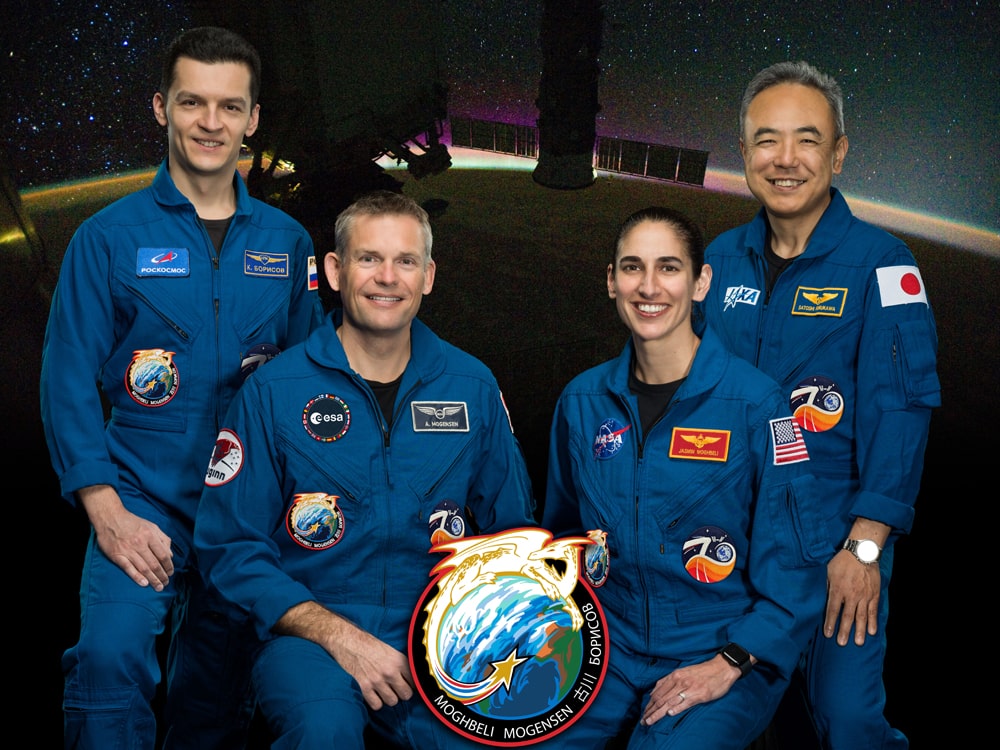
Crew-7 Portrait from left to right: Konstantin Borisov, Andreas Mogensen, Jasmin Moghbeli, Satoshi Furukawa. Image credit NASA/ESA
“For the future, going back to the moon or maybe onwards to Mars, we have to be much more independent.”
Andreas MogensenAlumnus, Department of Aerospace Engineering and Engineering Mechanics
Aerospace engineering alumnus Andreas Mogensen took to the stars today, flying his second trip to the International Space Station (ISS) where he is serving as the mission pilot and space station crew commander for the Huginn Mission.
The six-month mission includes astronauts from NASA, the European Space Agency (ESA), Japan Aerospace Exploration Agency and Russia’s Roscosmos. Mogensen will conduct more than 30 experiments for the ESA during the mission divided into three pillars: climate, health and space for Earth. He will also collaborate with team members on experiments for other space agencies.
One experiment that Mogensen considers particularly groundbreaking is testing the abilities of 3D printers to print metal components in space. Currently, if a mechanical or electrical part breaks down during a mission, the space station relies on spare parts being launched from earth. These launches are expensive and happen constantly due to the wear and tear the space station receives.
If 3D printers can be used to reliably create these necessary spare parts, it would be a great leap toward sustainability and self-sufficiency for the ISS.
Mogensen is also looking forward to continuing an experiment he began on his first mission, Iriss, in 2015—photographing giant lightning strikes, or blue jets, in the upper atmosphere from the space station’s Cupola (a small, windowed observation module).
At six months long, the Huginn Mission is more than 18 times longer than Mogensen’s previous mission.
“I’ll have more time to gather my thoughts and to really enjoy the time up there,” Mogensen said.
